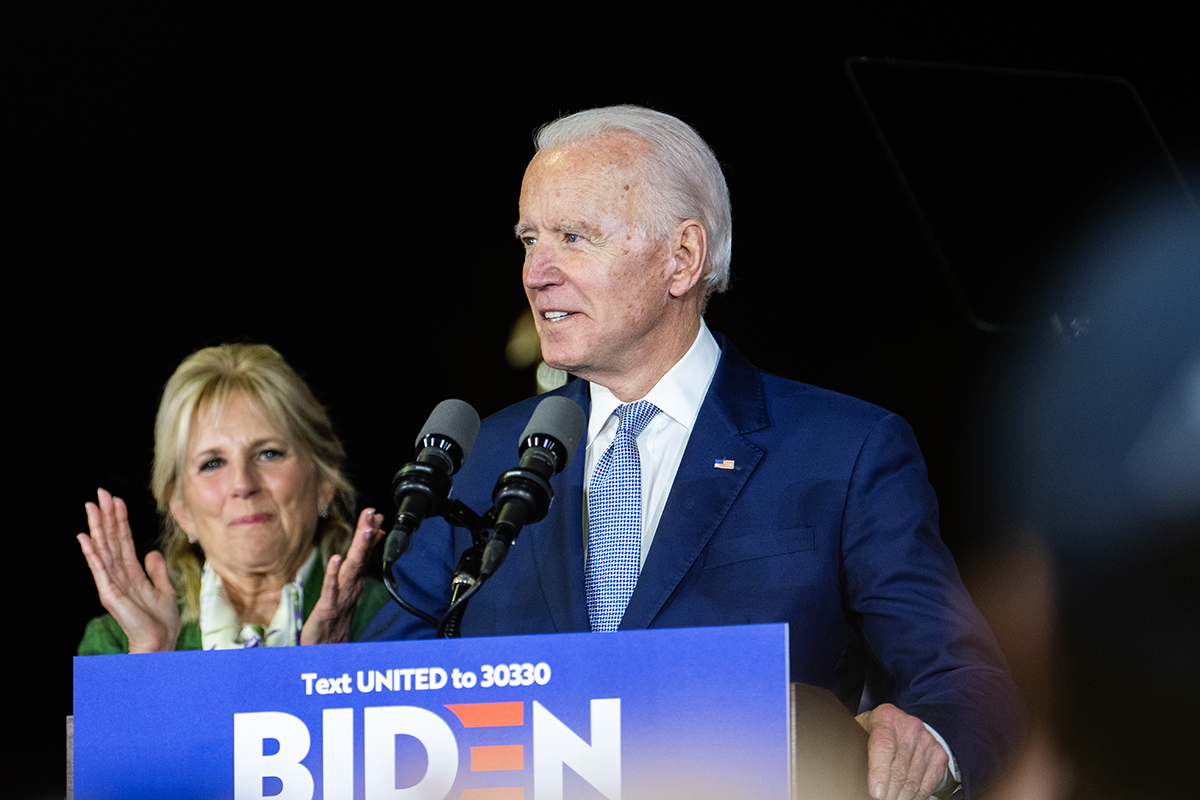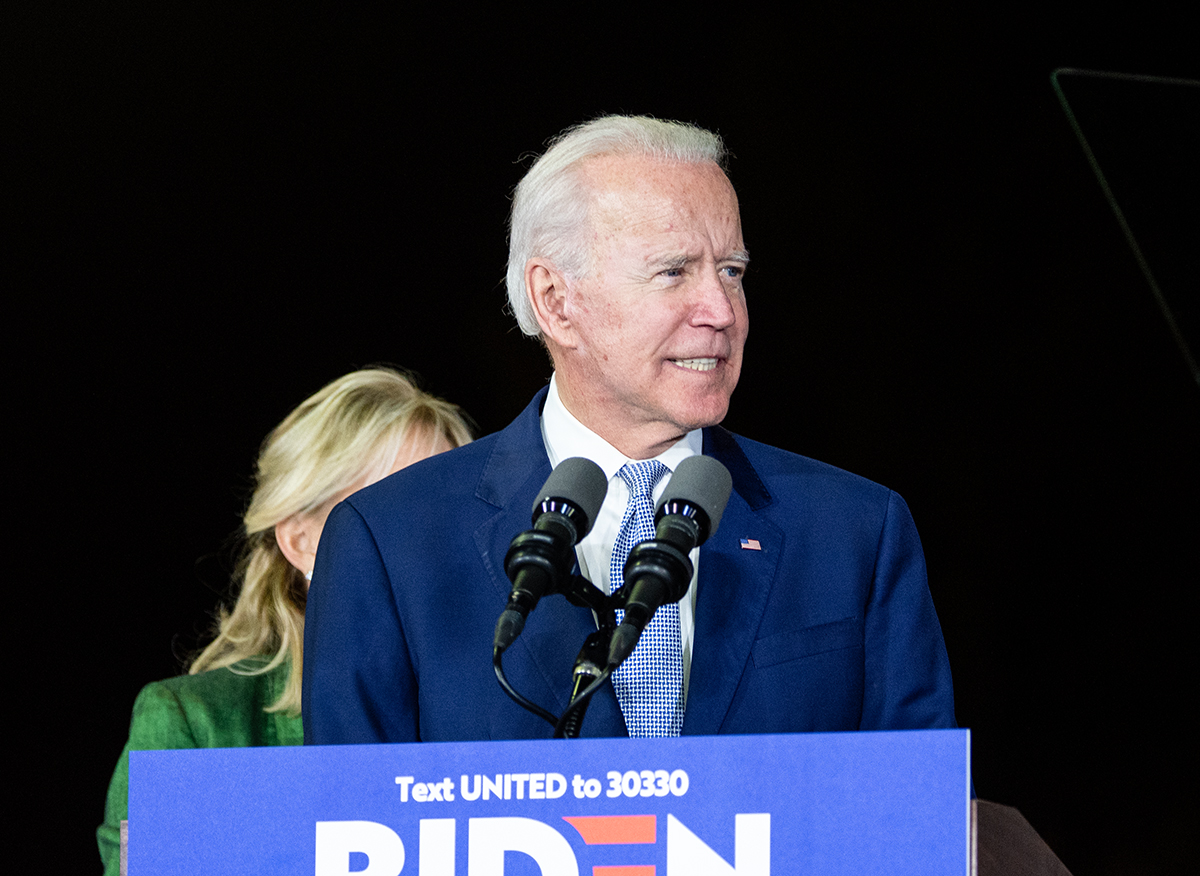UCLA community pushes for further action amid federal marijuana possession pardons

President Joe Biden at a UCLA-hosted event during his 2020 presidential campaign. Biden recently announced a pardon for offenses of simple marijuana possession and use at the federal level and in Washington, D.C. The decision comes amid conversation on decriminalization of cannabis. (Alex Driscoll/Daily Bruin staff)
UCLA community members expressed desire for future steps to decriminalize marijuana following President Joe Biden’s recent executive order to pardon previous offenses for possession and use.
Biden’s Oct. 6 decision announced pardons for all prior federal offenses, as well as those in Washington, D.C., for simple possession of marijuana charges. He also urged governors to pardon state offenses and requested that officials review marijuana’s Schedule I placement under the Controlled Substances Act. Limitations on trafficking, marketing and underage sales will remain in place, and marijuana possession and use are still illegal under federal law.
His order also noted that communities of color have been unfairly convicted for marijuana use and possession at higher rates than white communities.
While the decision is a step forward, state regulations surrounding marijuana legalization continue to conflict with federal criminalization of the drug, said Victor Narro, project director at the UCLA Labor Center.
Narro, who is also a commissioner on the Los Angeles Cannabis Regulation Commission, said Biden should also look to further marijuana accessibility given how many states have already legalized the drug.
Five states – Arkansas, Maryland, Missouri, North Dakota and South Dakota – are voting on ballot measures in the upcoming 2022 midterm elections to determine whether marijuana should be legal for adult recreational use, said Beau Kilmer, chair of Drug Policy Innovation and director of the Drug Policy Research Center at RAND Corporation, a public policy nonprofit.
“The states are moving in one direction, and the federal government is still in the other,” Narro said. “I think Biden needs to do more than just coddling.”
Most arrests for simple marijuana possession happen at the state and local level, so only a small proportion of hundreds of thousands of individuals are pardoned with this decision, Kilmer said.
Individuals pardoned may have an easier time obtaining social services and finding jobs, Kilmer said, adding that criminal convictions – especially those for drug possessions – lead to social barriers and additional consequences even after a criminal sentence is served.
Access to the economic benefits of marijuana has also been characterized by racial disparities, Narro said. Many communities of color harmed by the United States’ war on drugs are also unable to receive federal funding for social equity programs encouraging local marijuana dispensaries, Narro said, adding that Biden himself previously championed the 1994 Violent Crime Control and Law Enforcement Act. According to Vox, the law perpetuated the war on drugs by funding drug-related arrests.
Kilmer said that even though Biden has not always shown political support for decriminalizing cannabis use, the decision coming before the November midterm elections made political sense for the Democratic base.
Janve Sobers, a law student and president of the Cannabis Law Association, said she hopes the Democratic Party will focus on decriminalization, considering Biden’s involvement in the 1994 law.
“Hopefully it’s a sign to establishment Democrats that you can evolve with the times, and you should, because it’s now unequivocal that … the criminalization of the product has caused nothing but irreparable harm,” they said.
She added that it would be helpful for state and local offices to coordinate and prioritize decriminalization to increase equity for all communities across the country.
“Now’s the time to actually begin thinking about the pros because it’s not just yes- or no- legalization, there are a bunch of different choices that have to be made,” Kilmer said. “What are they going to mean for health? What are they going to mean for racial equity? You need to be having those conversations now.”






